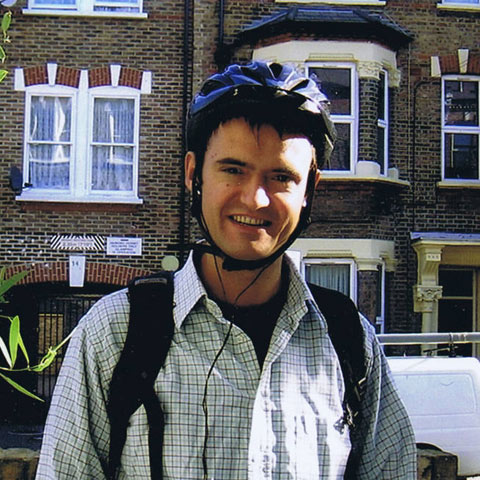Charitable Trust makes memorial donation for bipolar research

Lancaster University has been given a significant charitable donation to help improve the lives of people with bipolar disorder and their relatives.
The award was made by the Violet and Milo Cripps Charitable Trust in memory of Lord Milo Douglas who had bipolar disorder and tragically committed suicide in 2009, aged 34.
Thanks to the generous gift of the Trust, set up by the late Lord Parmoor, the University has been able to appoint Gerasimos Chatzidamianos, a post doctoral researcher. His research will explore the best ways of enabling people with bipolar disorder, their families and mental healthcare teams to work together. By talking to health care professionals, families and people with bipolar disorder, researchers hope to build a clear picture of the obstacles to positive working relationships which benefit the health of the client.
The team will then develop evidence-based interventions designed to improve constructive working relationships between the three groups. This work could be rolled out across the country to help improve the lives of individuals with a bipolar diagnosis and their families.
Lord Milo Douglas, son of the Marquess of Queensberry, was a former teacher and charity worker who suffered from bipolar affective disorder most of his adult life.
The family’s feelings are summed up by his mother Alexa Queensberry.
She said: “I am very glad that we have the chance to contribute to Lancaster University's research and, having met the impressive team, anticipate a significant contribution to the better treatment and understanding of bipolar sufferers like our son. If lives can consequently be saved in the future, his death will not have been the totally pointless, tragic waste that it is at the moment.”
The Spectrum Centre for Mental Health Research, Lancaster University, is the only research centre in the UK dedicated to translational research into the psychology and psychological treatment of bipolar disorder.
Translational research is work which sets out to make its research benefits quickly available to the population under study.
Professor Steve Jones, Director of the Spectrum Centre, said: “Approximately one in 100 people will experience bipolar disorder which most commonly starts in adolescence when the vast majority of people will be living at home with families. This can be a very frightening time for relatives who often have little knowledge of what is happening or how to manage it. Due to the often chronic and relapsing nature of bipolar disorder these issues for family can also develop into long term problems. We hope to improve our understanding of the information and support that relatives might need to enhance their own and their relative’s functioning and to develop an intervention with the potential to meet these needs.”
For further information about this or other research projects related to bipolar disorder visit www.spectrumcentre.org, or contact The Spectrum Centre on +44 (0)1524 593756.